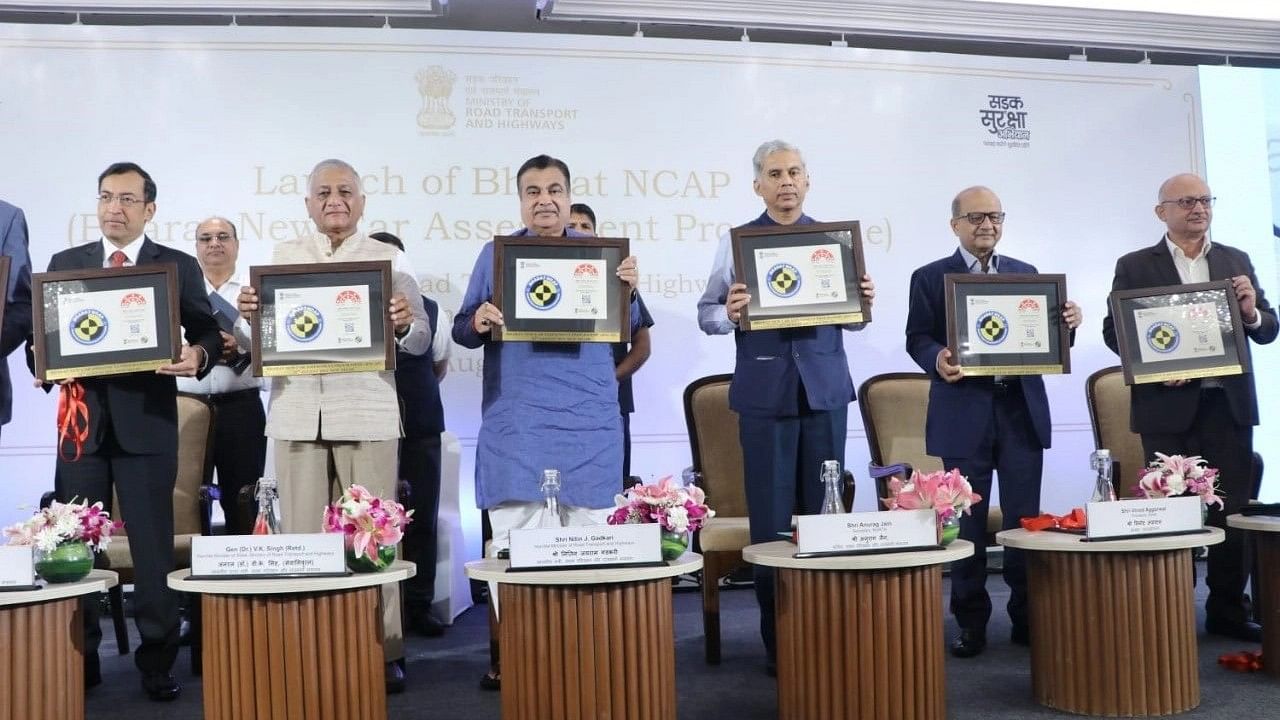
Road, Transport and Highway Minister Nitin Gadkari launched Bharat NCAP in New Delhi on Aug 22.
Credit: X (formerly Twitter)/@nitin_gadkari
India has its own indigenous automobile crash testing programme now, as the Union Minister for Road, Transport and Highways, Mr Nitin Gadkari launched the Bharat National Car Assessment Programme (NCAP) on August 22. Set to be implemented across the country from October 1, 2023, the Bharat NCAP makes India the fifth country to have such a program after the US, China, Japan and South Korea.
The programme aims to enhance road safety by elevating vehicle safety standards for vehicles weighing up to 3.5-tonnes in India. In a country with an alarmingly high rate of road accidents resulting in loss of lives and costing the Indian economy 3-5 per cent of its GDP, the NCAP comes as a much awaited reform that prioritises consumer safety by providing them with a tool to make comparative assessments based on NCAP ratings. Moreover, it will also place the Indian automobile industry at a higher pedestal when competing in the global market.
“Under this programme, car manufacturers can voluntarily offer their cars tested as per Automotive Industry Standard (AIS) 197,” a statement by the ministry said.
“Based on the performance of the car in the tests, the car will be awarded star ratings for Adult Occupants (AOP) and Child Occupant (COP). Potential car customers can refer to these star ratings to compare the safety standards of different vehicles and accordingly make their purchase-decision," it added.
Similarities and Differences with Global NCAP
The Bharat NCAP is claimed to have been developed in accordance with testing and evaluation methods of Global NCAP and Euro NCAP, though specific protocols have been developed keeping the Indian perspective in focus.
The Global NCAP, which is the apex body amongst all NCAPs is a private entity, whereas the Bharat NCAP will be helmed by the Government of India. When it comes to rating, the Global NCAP expects a minimum of 34 points in crash tests to assign five stars for Adult Occupant protection. But with Bharat NCAP, cars would have to secure a minimum of 27 points for AOP and 41 for COP to get a five star rating, reported HT Auto.
The crash testing methods are in line with Global NCAP, as Bharat NCAP has also adopted three different testing assessments: offset deformable barrier frontal impact test, side impact test, and pole side impact test. Additionally, installation of six airbags, Electronic Stability Control (ESC), three pointer seatbelts, improved emergency braking system, etc., have been mandated by Bharat NCAP.
In terms of testing speed, Bharat NCAP impact assessment would be carried out at a lower speed than Global NCAP.
The development has been welcomed by car manufacturers like Maruti Suzuki, Mahindra and Toyota, who have termed it as a bold step in the right direction.